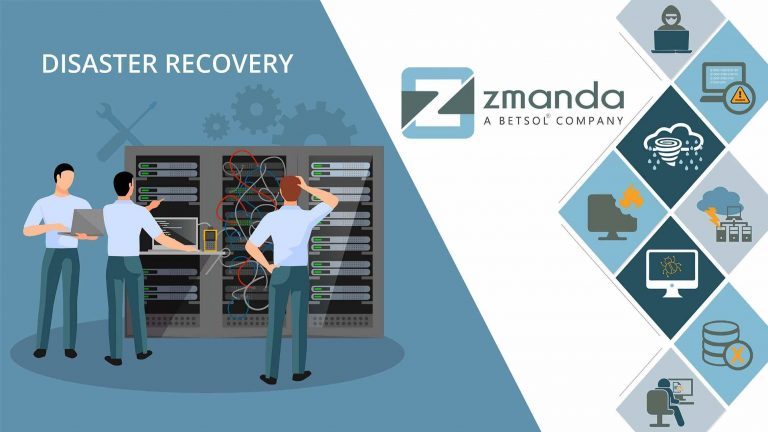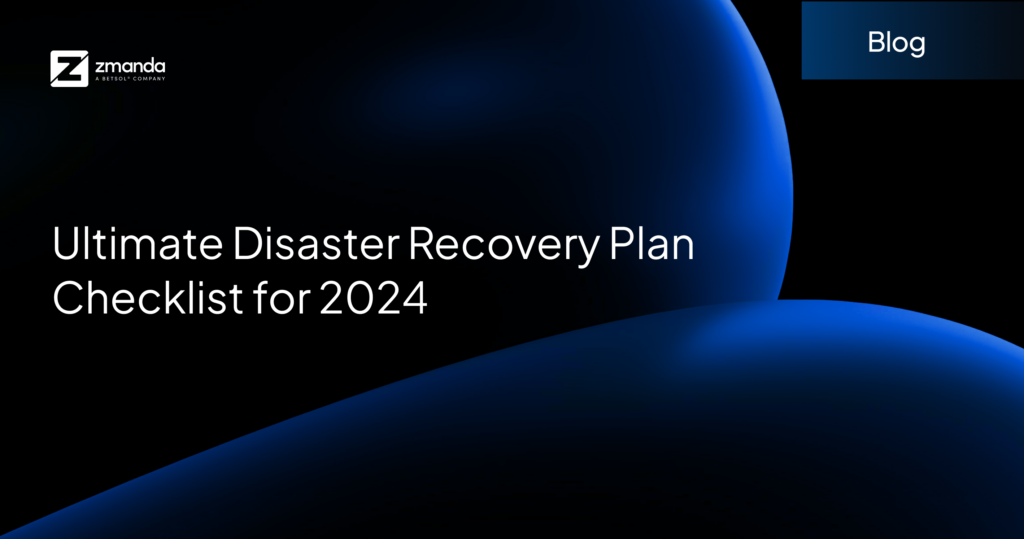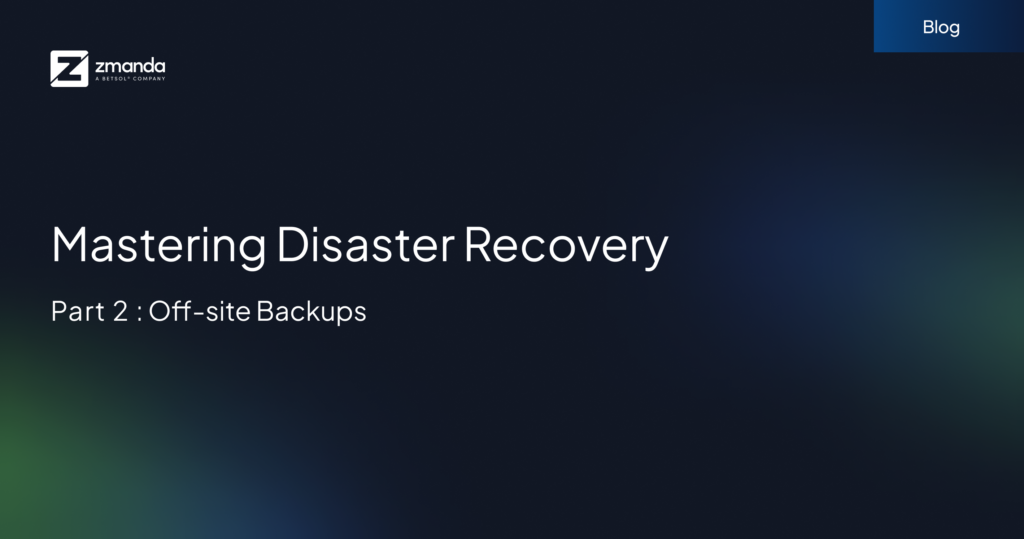
Understanding why is disaster recovery important, is vital for all industries. Disasters can come at any time, and in any shape, for instance, it can be in the form of a cyberattack that takes your website out of the game, an equipment failure, or a flood that renders your office ramshackle threatening business continuity. Without understanding the importance of disaster recovery, companies face prolonged downtime and revenue loss. IT disaster recovery involves strategies to ensure the swift restoration of critical systems and data in the event of such calamities. Several scenarios can hit your business hard, and having a robust IT disaster recovery plan in place is essential.
Spending money on something that you are not sure will happen or planning for unknowns might seem like a hard pill to swallow for many companies. However, ‘caring’ for your business means formulating strategies for ‘what if’ scenarios, including those related to IT disasters. Have you ever heard of catastrophic data loss? Natural disasters like earthquakes, floods, hurricanes, and fires are a few that result in catastrophic data loss. Understanding the importance of disaster recovery, particularly in IT, ensures that even in the face of such catastrophes, your business can continue operating with minimal disruption.
According to Atlantic more than half of organizations (58%) are not ready for a major loss of data. Let us imagine XYZ is a small private company in New York, which stores its employee data on two or three computers. They track their employee login, logout, and shift details every month, and based on this data roll out their salaries accordingly. One fatal day a hurricane in the state causes power surges, physical damage from high winds, and flooding.
This affected the XYZ Company too as due to the power surge, their delicate computer hardware gets damaged, and hard disks malfunctioned. As a result, there is a loss in their vital data and surge in salaries inappropriately affecting their revenue in minutes. After such a disaster, it is difficult for any business to get up and run. So undoubtedly, being prepared is your best defense, highlighting the importance of a disaster recovery plan.
Still not convinced? Let’s have a look at the five reasons why disaster recovery is important for your business.
Top 5 Reasons Why is Disaster Recovery Important
1. IT Disaster Recovery Safeguards Your Authority
The importance of disaster recovery cannot be overstated, especially in safeguarding your authority. When a disaster strikes, operations are disrupted, but additional problems can arise, impacting credibility.
A robust IT disaster recovery plan in place will get your systems back up and running in a few hours. If the business is back on track more quickly, this means less loss of customer data. Thus your reputation is safe. With a proper disaster plan, your staff knows what they need to do, and what information to pass on to customers, so no one needs to worry.
2. Gives You a Sense of Your Priorities
Disasters come unpredictably, highlighting why disaster recovery is important. It’s crucial to prioritize the data that you need to recover first, a task facilitated by a business impact analysis report (BIA), a vital component of disaster recovery planning.
A BIA helps in determining the possible impacts of various scenarios, including human-generated incidents, cyberattacks, malware, or naturally occurring disasters, on the operations of your organization. Additionally, it aids in identifying critical systems and their dependencies, guiding the establishment of recovery priorities.
Within the context of disaster recovery planning, two essential metrics are Recovery Point Objective (RPO) and Recovery Time Objective (RTO). RPO defines the maximum tolerable amount of data loss measured in time, indicating how far back in time your data backups need to be restored for business continuity. On the other hand, RTO specifies the duration within which a system or service must be restored after a disruption to avoid significant consequences to the organization.
Conducting a BIA enables organizations to determine their RPO and RTO accurately illustrating the importance of disaster recovery. This information allows them to establish specific recovery timeframes for different services and systems, helping prioritize resources and strategies for bringing everything back online efficiently in the event of a disaster.
3. Get Back to Business Even After a Natural Disaster with IT Disaster Recovery
Mother Nature’s unpredictability is well-known, and her wrath can be devastating. Natural disasters have the potential to disrupt operations significantly, emphasizing on why disaster recovery is important.
Without adequate preparation, the aftermath of a natural disaster can cripple a company’s ability to resume operations swiftly, endangering its future viability. Typically, companies that lack a proper disaster recovery plan may take months or even years to recover fully, leading to substantial revenue loss in addition to the immediate impact of the disaster.
4. No Access to a Physical Facility? Your Business Still Runs Smoothly with Remote Operations!
As discussed in the last point, natural disasters are tragic. It can prevent you from accessing your facility entirely, leading to disaster when you don’t have a data backup system in place. Controlling nature or Power Company is not in your hands.
What you can control is how your business reacts when things do not go as planned–and an effective IT disaster recovery plan will ensure that you move on.
A good disaster recovery plan will help you access your vital data in spite of disasters that could otherwise have prevented it. That means less number of lost records, customers, and wasted hours in re-entering or re-collecting data.
Spending a little on data recovery plans now makes sense, as it will make a big difference in your data recovery costs when disaster does hit.
5. No Losing Customers
Perfection is what customers expect from your business. Every minute of downtime can lead them to discontinue working with you in the future. It is time to rethink customer reacquisition, which is incredibly costly. Therefore, when disaster strikes, the IT disaster recovery plan is the critical element that will keep your customers from disappearing, showcasing why disaster recovery is important.
Also, be sure to check out Mastering seven levels of disaster recovery
Wrapping-up
Every business is at risk of losing access to their data and applications. A perfect disaster recovery plan can help you ensure that a loss is a minor and temporary problem, restoring your business operations quickly.
Don’t wait for disaster to strike. Proactive planning is key to meeting your RTOs and RPOs. Modern technology, strong security, and a focus on data management are the cornerstones of a resilient business. Implement robust IT disaster recovery strategies and allocate adequate resources to ensure business continuity. Ready to take the lead in your IT disaster recovery tango? We offer a free DR strategy consultation with a data expert. They’ll assess your specific needs and help you craft a customized plan to minimize downtime and data loss.
Want to experience the power of Zmanda firsthand? Start your Free Trial today: Zmanda Pro
Referral Links:
-
Boman. “The Top 5 Reasons a Disaster Recovery Plan Should Be an IT Priority.” The Top 5 Reasons a Disaster Recovery Plan Should Be an IT Priority, blog.newcloudnetworks.com/the-top-5-reasons-a-disaster-recovery-plan-should-be-an-it-priority.
-
“The Importance of Disaster Recovery In the Midst of a Natural Disaster.” Atlantic.Net, Atlantic.Net, 18 Mar. 2019, www.atlantic.net/hipaa-disaster-recovery/the-importance-of-disaster-recovery-in-the-midst-of-a-natural-disaster/.
-
“The 3 Most Important Reasons Your Business Needs a Disaster Recovery Plan.” Stronghold Data, Stronghold Data /Wp-Content/Uploads/2017/06/StrongholdDataLogo.png, 11 Sept. 2018, www.strongholddata.com/3-important-reasons-business-needs-disaster-recovery-plan/.


